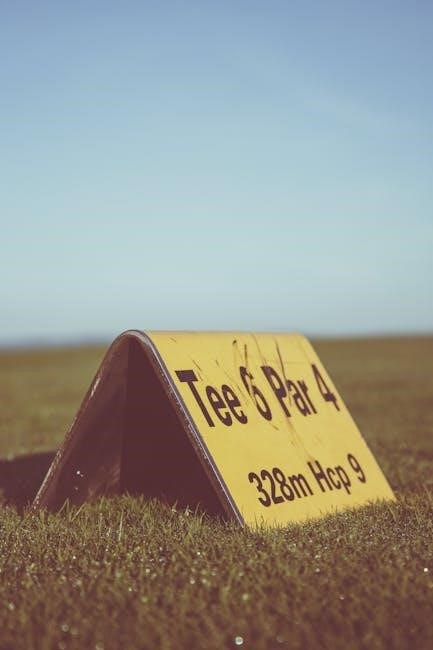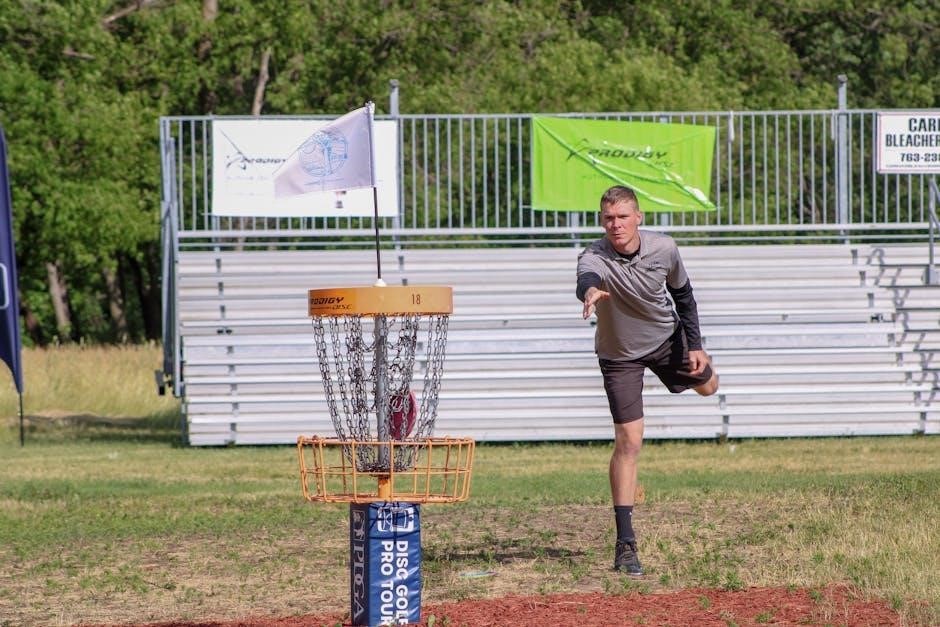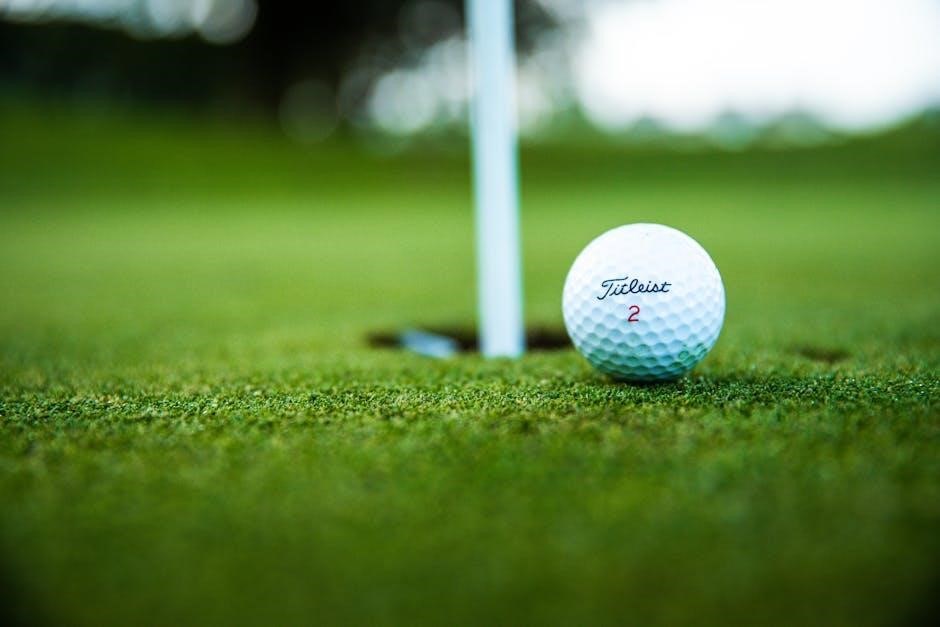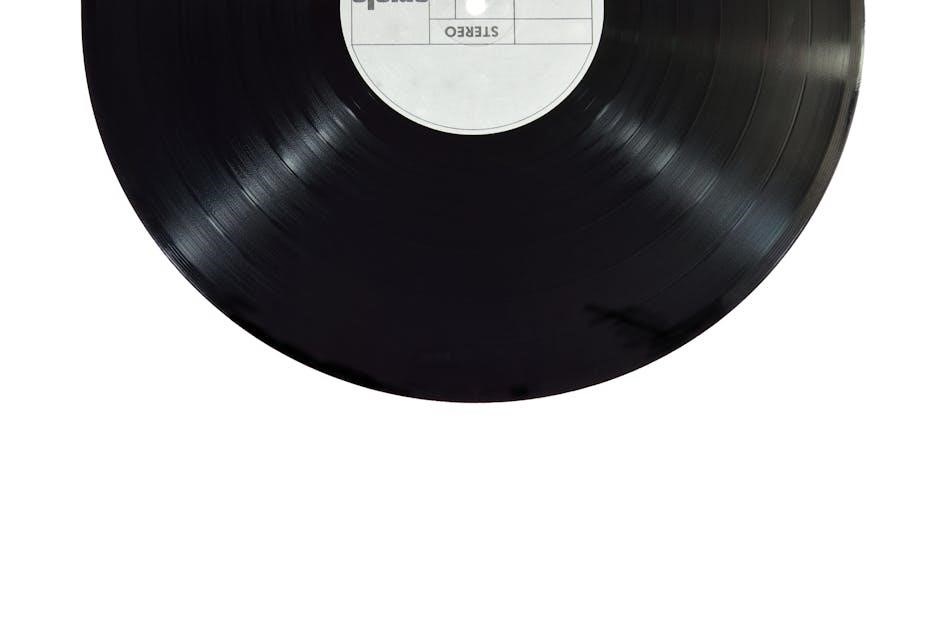
Disc golf rules are governed by the PDGA, ensuring fair play and standardized competition. Understanding these rules is essential for players to navigate the game effectively and respectfully.
1.1 Overview of Disc Golf
Disc golf is a recreational outdoor activity similar to traditional golf, played using a flying disc. Players aim to complete a course with the fewest throws, navigating through natural environments. Courses typically feature 9 or 18 holes, each ending at a target. The sport emphasizes both skill and enjoyment, making it accessible to a wide range of participants worldwide.
1.2 Importance of Understanding the Rules
Understanding disc golf rules is crucial for ensuring fair play, safety, and sportsmanship. Rules guide players on proper etiquette, penalties, and course navigation, fostering a respectful environment. They also clarify expectations for equipment, scoring, and conduct, helping players avoid disputes and enjoy the game fully. Adhering to rules enhances the experience for all participants and maintains the integrity of the sport.
Official Rules of Disc Golf
The official rules are governed by the PDGA, updated annually to ensure fair play and clarity. The 2025 rules include key changes, available in the official PDGA rulebook PDF.
2.1 PDGA Governance and Rule Updates
The PDGA governs disc golf, updating rules annually to maintain fair play and adapt to the sport’s growth. Changes are effective January 1 each year, outlined in the official PDF rulebook; The Policy & Compliance team reviews input from players and stakeholders to refine rules, ensuring clarity and consistency across all sanctioned events and competitions globally.
2.2 Key Rule Changes for 2025
The PDGA introduced several rule updates for 2025, effective January 1. Notable changes include clarifications on out-of-bounds definitions and modifications to the 30-second rule. These adjustments aim to enhance gameplay efficiency and reduce controversies, ensuring a smoother experience for players. The updated rules are detailed in the 2025 PDGA Official Rules of Disc Golf PDF, available online for reference.
Game Description and Objectives
Disc golf involves throwing a disc toward targets on a course, aiming to complete each hole in the fewest throws. The objective is to achieve the lowest score possible by navigating natural obstacles efficiently and accurately.
3.1 Course Structure and Play
A disc golf course typically features 9 or 18 holes, each with a tee area and a target. Players take turns throwing from the tee, aiming to reach the target in the fewest throws. The objective is to complete each hole with the lowest score possible. Play proceeds sequentially, with each player respecting the rules and etiquette to ensure fair and enjoyable competition for all participants.
3;2 Scoring System and Winning Conditions
The scoring system in disc golf is based on the number of throws taken to complete each hole. Players aim to achieve the lowest score possible. Penalties, such as out-of-bounds throws, add strokes to a player’s score. The winner is determined by the lowest total score after all holes. This system ensures a fair and competitive environment, adhering to the official PDGA rules and promoting sportsmanship among players.

Basic Rules of Play
Players must tee off from designated areas and follow the order of play. The objective is to complete each hole in the fewest throws possible, adhering to official PDGA guidelines and handling penalties appropriately to ensure fair and enjoyable gameplay for all participants.
4.1 Teeing Off and Throwing Order
Each hole begins with players teeing off from the designated area. The order of play is determined by the best score from the previous hole. The player with the lowest score throws first. If no scores are recorded, the order is decided by mutual agreement or random draw. Failure to follow the order results in a one-throw penalty. This rule ensures fair play and maintains the game’s integrity.
4.2 Out of Bounds and Penalty Strokes
A disc is considered out of bounds if it lands beyond designated course boundaries or in areas marked as such. Players incur a one-stroke penalty and must re-throw from the original position or play from where the disc crossed the boundary. Understanding these rules is crucial for maintaining fair play and adhering to course guidelines.

Equipment and Course Standards
Equipment must meet PDGA standards, including approved discs and targets. Courses must be well-maintained, ensuring safety and environmental preservation, adhering to official guidelines for play.
5.1 Approved Discs and Targets
The PDGA governs equipment standards, ensuring discs and targets meet specific criteria. Approved discs must adhere to size, weight, and rim width regulations. Targets, including baskets and chains, must meet height and technical specifications to ensure consistent play. Adherence to these standards is crucial for fair competition and maintaining the integrity of the game across all courses and events.
5.2 Course Maintenance and Safety Guidelines
Proper course maintenance ensures player safety and environmental preservation. Guidelines include clearing debris, maintaining fairways, and installing signage. Safety measures like visible pathways and hazard markers are essential. Players must respect the environment, avoiding damage to vegetation and wildlife. Regular inspections and updates help uphold these standards, ensuring a safe and enjoyable experience for all disc golfers.

Etiquette and Sportsmanship
Etiquette and sportsmanship are crucial in disc golf, emphasizing respect for others, yielding turns, and fair play. Players must ensure safety and avoid distractions, fostering a positive environment.
6.1 Player Conduct and Respect for Others
Players must exhibit respect and courtesy to others on the course. This includes yielding turns, avoiding distractions, and ensuring safety. Respect for fellow players, volunteers, and staff is essential. Proper conduct fosters a positive environment, promoting fair play and enjoyment for all participants. Adhering to these guidelines ensures a welcoming and inclusive experience in disc golf.
6.2 Environmental Awareness and Course Preservation
Players must preserve the natural environment by staying on designated paths and avoiding damage to plants and wildlife. Littering is strictly prohibited, and all waste should be disposed of properly. Respecting the course’s natural state ensures its longevity and beauty for future players. Environmental stewardship is a shared responsibility in the disc golf community;

Penalties and Violations
Penalties are applied for rule violations, such as out-of-bounds throws or lost discs. Common violations include throwing out of turn or moving a disc illegally, adding strokes or leading to disqualification if unresolved.
7.1 Common Penalties and Their Consequences
Common penalties include one-stroke penalties for out-of-bounds throws, lost discs, or provisional discs. Repeated violations may lead to disqualification, emphasizing fair play and adherence to rules. Understanding these consequences ensures players maintain integrity and sportsmanship during the game.
7.2 Dispute Resolution and Rule Interpretations
Disputes are resolved through the PDGA’s guidelines, emphasizing fairness and sportsmanship. Rule interpretations must align with the Official Rules of Disc Golf. If a situation isn’t covered, decisions are made based on logical extensions of existing rules, ensuring consistency and integrity in gameplay.

Tournament Rules and Formats
Tournament rules and formats vary, including medal play, match play, and group scoring. The PDGA governs these events, ensuring compliance with official rules for fair competition.
8.1 Medal Play and Match Play Differences
Medal play focuses on cumulative score over rounds, while match play compares hole-by-hole results. Medal play emphasizes total strokes, whereas match play rewards hole victories. Both formats are governed by PDGA rules, ensuring fair competition and clear outcomes in disc golf tournaments.
8.2 Group Play and Scoring in Tournaments
In group play, players compete in teams or individually, with scores tallied collectively. Scoring systems vary, with medal play focusing on total strokes and match play on hole-by-hole results. Live scoring is often used for transparency, ensuring accurate and timely updates. After each round, scores are posted to determine standings, adhering to PDGA rules for fair and organized competition.
Recent Updates and Revisions
The 2025 PDGA Competition Manual introduces key rule updates, effective January 1, 2025, focusing on improving gameplay fairness and clarity for disc golf competitions worldwide.
9.1 Summary of Changes for 2025
The 2025 PDGA Competition Manual introduces several key updates to enhance fair play and clarify rules. Changes include adjustments to penalty strokes for out-of-bounds throws and new guidelines for time limits during tournaments. These revisions aim to streamline gameplay and ensure consistency across all disc golf competitions.
Players are encouraged to review the updated rules to maintain compliance and improve their understanding of the game. The changes reflect the PDGA’s commitment to evolving the sport while preserving its core traditions and spirit.
9.2 Impact of Rule Changes on Gameplay
The 2025 rule changes significantly influence gameplay by refining penalty systems and time limits, ensuring smoother tournament operations. These adjustments promote fairness and efficiency, enabling players to focus on strategic play while adhering to updated guidelines. The modifications are designed to enhance the overall disc golf experience without altering the sport’s fundamental nature.

Resources for Learning the Rules
Access the official PDGA rulebook, online guides, and PDF resources to learn disc golf rules. These tools provide comprehensive insights, improving your understanding and ensuring compliance with updated regulations.
10.1 Accessing the Official PDGA Rulebook
The official PDGA rulebook is accessible online as a PDF, providing comprehensive rules and competition standards. Updated annually, it’s available on the PDGA website, ensuring players have the most current guidelines. This resource is essential for understanding disc golf regulations and staying informed about any rule changes effective January 1 each year.
10.2 Online Guides and Tutorial Materials
Online guides and tutorials provide accessible resources for learning disc golf rules. The PDGA offers a digestible rules guide, while platforms like YouTube feature video tutorials. PDF versions of the rulebook, updated annually, are available for download. These materials help players understand rules, improve gameplay, and stay informed about updates, ensuring a comprehensive understanding of disc golf regulations.

Course Management and Setup
Course management involves designing layouts, maintaining safety, and ensuring fair play. Proper setup adheres to PDGA standards, promoting enjoyable and competitive disc golf experiences for all players.
11.1 Designing a Disc Golf Course
Designing a disc golf course involves careful layout planning, considering terrain, hole length, and target placement. Courses typically feature 9 or 18 holes, with each hole designed to challenge players while ensuring safety and environmental preservation. Proper design ensures fair play, variety, and enjoyment for all skill levels, aligning with PDGA standards for sanctioned events and competitive play.
11.2 Sanctioning Events and Course Certification
Sanctioning disc golf events and certifying courses involve adhering to PDGA guidelines, ensuring compliance with official rules and safety standards. Course certification requires submitting detailed layouts and meeting specific criteria. Sanctioned events gain recognition, attract more players, and uphold the integrity of the sport, fostering growth and standardized competition across all levels of play;
Mastering disc golf rules enhances your game and respect for the sport. Continuous learning and practice will deepen your enjoyment. Thank you for exploring the rules!
12.1 Final Thoughts on Mastering the Rules
Mastering disc golf rules is essential for fair play and sportsmanship. Understanding the PDGA guidelines ensures clarity and consistency in gameplay. Continuous learning and adaptation to rule updates will enhance your experience. Embrace the rules to fully enjoy the sport and contribute to its growing community. Happy disc golfing!
12.2 Encouragement to Play and Learn
Disc golf is a growing, accessible sport that welcomes players of all skill levels. Grab a disc, explore local courses, and dive into the official PDGA rulebook to enhance your experience. Learning the rules fosters respect for the game and its community. Embrace the journey, enjoy the outdoors, and keep improving—disc golf is a lifelong adventure waiting for you!